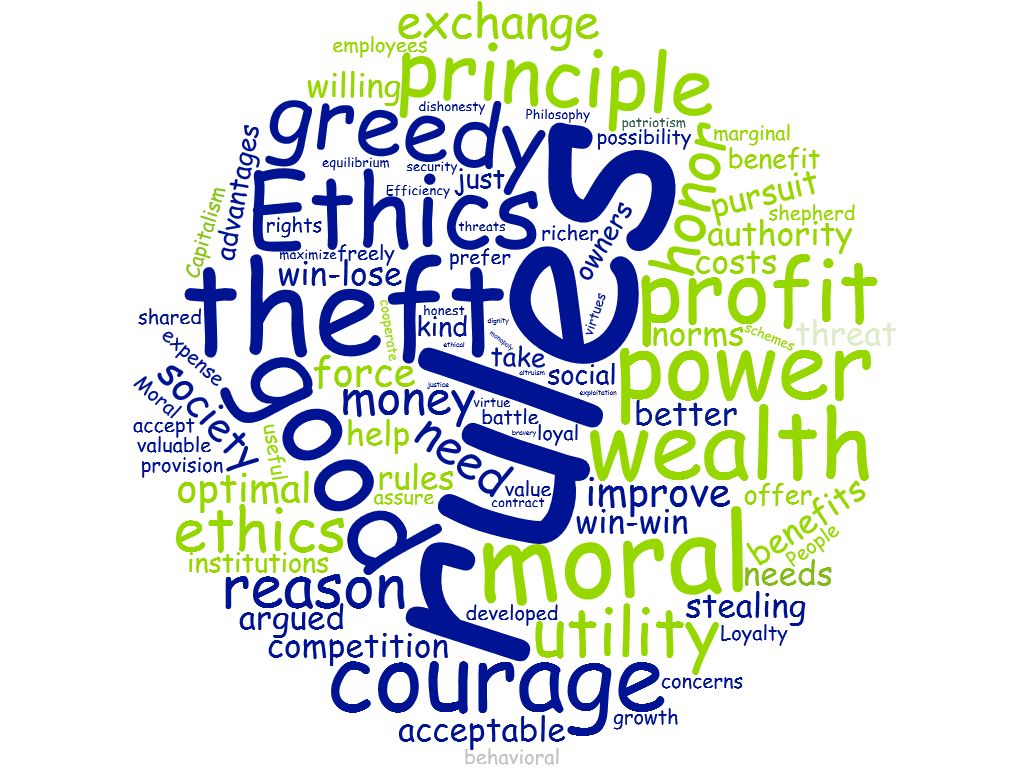THE ROLE OF PRIVATE PROPERTY IN A CAPITALIST MARKET ECONOMYReality Check: Do we have a Right to Property?I have purposely avoided using the term property rights in the previous discussion in order to avoid several ways in which the term can be misunderstood. First, a property "right" might suggest to some that everyone is entitled or is to be endowed with some quantity of property. In this interpretation, some other entity, presumably the state, is obligated to secure every citizen's property "right." Thomas Paine argued in Agrarian Justice (1797) that all citizens of a country were entitled to a share of the nations’ productivity because a portion of all private property rightfully belonged to everyone. He suggested that in a natural state of nature, land is equally owned by everyone and only after the agricultural revolution did people turn common property into private property. However, he argued that only the extra value added by privatization is truly the owners’ private property and that the remainder belongs to everyone. This idea can be used to justify a system of universal basic income. A property “right” might also seem to imply an obligation on the part of government to guarantee the protection of a person’s property claims. If you interpret it this way, then if something is stolen, you could presumably charge the government with violating your rights (because they did not fulfill their protection obligation), and then force it to compensate you for your loss (if they cannot reclaim and return the property). However any government compensation would have to come from the taxpayers. This means that it is the taxpayers who would compensate for any losses incurred by those whose “rights” have been violated. In this case, a system of property rights essentially becomes a social insurance scheme whereby the collective of all taxpayers insures against all of society’s losses. This is not what property rights means. An alternative interpretation would say that a government is charged by taxpayers to protect against property violations to the best of its ability subject to a budget that taxpayers are willing to pay. For example, a local police force does its best to prevent crime in the community but it can’t stop it completely, especially not at low cost. If property is stolen, police cannot guarantee its return and if citizens do not have a property “right” then they cannot sue the government for compensation. In this case government is used to establish a judicial system to protect citizens from property claim violations to the best of its funded ability, but citizens do not have a “right” the property itself. The best interpretation however, is that individuals only have a right to property ownership. That means that individuals are always allowed to own their own property and to use it as they see fit. The government is there to promote this by establishing systems to track property ownership using titles and deeds and to police and prosecute property ownership violations and theft. Thus,using the term property claim instead of property right, suggests a more restricted role for government in the protection of private property. Steven Suranovic, April 26, 2020 Additional Readings about Property |
INTERESTING ASIDESThomas Paine
"Men did not make the earth... It is the value of the improvements only, and not the earth itself, that is individual property... Every proprietor owes to the community a ground rent for the land which he holds." The Mystery of Capital
While the book title does not suggest it, this book taught me all sorts of important aspects about property rights, especially in informal sectors. -SS |

The Ethical Economics
Study Center

